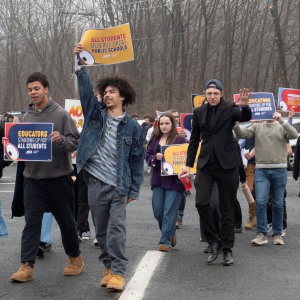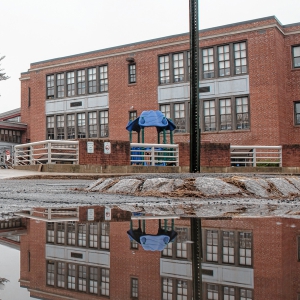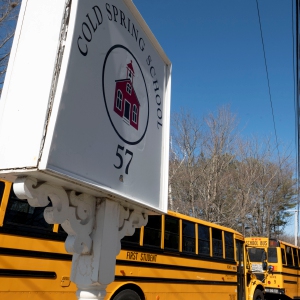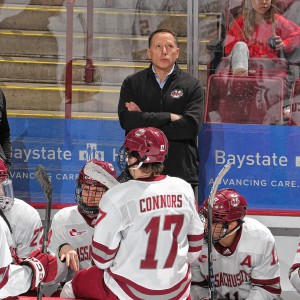‘Millionaire tax’ question heads to 2018 state ballot
| Published: 06-14-2017 11:33 PM |
BOSTON — A proposed “millionaire tax” constitutional amendment is heading to the 2018 ballot after Massachusetts lawmakers voted 134-55 Wednesday to place the measure before voters.
Under the plan, individuals with annual incomes above $1 million would be subject to a 4 percent surtax. The surtax would only apply to portions of income over $1 million. The current income tax rate is 5.1 percent.
Supporters, who have dubbed the measure the Fair Share Amendment, say it would raise an extra $1.9 billion each year that could only be spent on “quality public education, affordable public colleges and universities, and the repair and maintenance of roads, bridges, and public transportation.”
“This fair share amendment is asking those with the highest income among us to pay a bit more, to pay their fair share,” said Democratic Rep. Jay Kaufman during the joint legislative session.
Critics argue it would hurt the state’s business climate, drive away jobs, and put pressure on the state’s wealthiest individuals to move away.
Senate Republican Leader Bruce Tarr said the proposal uses “divide and conquer” tactics to target a discreet group of taxpayers — as few as 20,000 — and make them responsible for improvements to education and transportation.
Tarr and other opponents also argue the question violates the state constitution because it amounts to a budget appropriation. Ballot questions in Massachusetts are barred from making specific budget appropriations.
At least one business organization — the Massachusetts High Technology Council — is considering challenging the question’s constitutionality.
Article continues after...
Yesterday's Most Read Articles
 Nearly all of South Hadley High’s student body holds ‘walkout to walk-in’ rally to oppose cuts, call for funding reform
Nearly all of South Hadley High’s student body holds ‘walkout to walk-in’ rally to oppose cuts, call for funding reform
 Northampton schools probe staff response to student’s unfulfilled IEP
Northampton schools probe staff response to student’s unfulfilled IEP
 Amherst’s Ryan Leonard makes NHL debut for Washington Capitals in 4-3 win over Bruins in Boston
Amherst’s Ryan Leonard makes NHL debut for Washington Capitals in 4-3 win over Bruins in Boston
 Belchertown voters to decide on $3.3M override for schools, town, capital projects
Belchertown voters to decide on $3.3M override for schools, town, capital projects
 Four Red Fire Farm workers arrested as part of ICE operation in Springfield
Four Red Fire Farm workers arrested as part of ICE operation in Springfield
 UMass hockey: Carvel reflects on Minutemen’s successful 2024-25 season
UMass hockey: Carvel reflects on Minutemen’s successful 2024-25 season
Backers say the question is constitutional because it would still be up to future Legislatures to appropriate the money.
Democratic Senate President Stan Rosenberg said the proposal is about “tax fairness and making critical public investments in education and transportation.”
Democratic House Speaker Robert DeLeo said the amendment would “make needed investments to the foundations of our strong economy - quality education and transportation - without putting any additional burden on our middle class.”
The question has also become a key point of contention in the 2018 governor’s race.
A spokeswoman for Gov. Charlie Baker, who is expected to seek re-election next year, said the Republican “does not support tax increases on our hardworking families and was pleased to sign a balanced budget last year that reflects the administration’s priorities to create better communities, schools and jobs with no new taxes.”
All three Democratic candidates back the measure.
Environmental activist Robert Massie and Jay Gonzalez, a top state budget official under former Democratic Gov. Deval Patrick, released a joint statement calling on Baker to support the tax hike.
“At a time when so many are struggling to keep their heads above water, the Fair Share Amendment is a reasonable, modest step toward solving some of our most urgent challenges,” the two said in a statement.
Newton Mayor Setti Warren, also running for governor, said Massachusetts voters should be allowed to decide whether to ask people who make more than $20,000 a week to pay a little more.
The process to get a proposed constitutional amendment on the ballot requires the measure receive the backing of at least 25 percent of lawmakers meeting in a joint constitutional convention during two successive legislative sessions.
During a constitutional convention last year, lawmakers voted 135-57 to approve the measure.
]]>






 Long-vacant former Faces spot in Northampton gets new tenant
Long-vacant former Faces spot in Northampton gets new tenant Here come the sweetness: Four new businesses prepping to open in downtown Northampton
Here come the sweetness: Four new businesses prepping to open in downtown Northampton Area property deed transfers, April 4
Area property deed transfers, April 4 Making News in Business, April 4
Making News in Business, April 4
